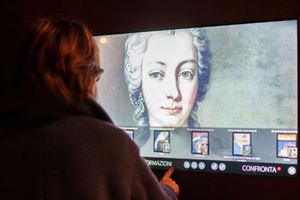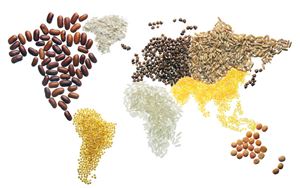The Calciopoli and Vatileaks scandals are only the most recent among a series of high-profile cases of political corruption that have damaged public confidence in the Italian political system. Although Italy’s ‘culture of corruption’ is nothing new, it seems that disenchantment has hit a peak as Italians, struggling to stay afloat, are trying to come to terms with tougher austerity measures, higher taxes and unemployment. And in the country’s latest call to the polls, Italians seem to have sent their representatives in Parliament a clear message.
That public confidence in Italy’s political parties has declined is evident in the lowest levels yet of voter turnout for the administrative elections last May, held in more than 900 municipalities and provinces: 66.88 percent compared to the 73.74 percent voter turnout five years ago. Even Italy’s president, Giorgio Napolitano, said the elections merit reflection: ‘The vote gives reasons for reflection to political forces and citizens.’
The elections also saw the political rise of Italy’s comedian-turned-politician (or a modern-day Savonarola and political dissendent, as some have called him), Beppe Grillo. The most significant example saw the mayoral candidate for Grillo’s Five Star Movement (M5S), 39-year-old Federico Pizzarotti, win 60 percent of votes in Parma. M5S also won mayoral races in Mira (39,000 inhabitants), Comacchio (23,000) and Sarego (6,500), and a M5S candidate posed a threat in Genoa, which eventually went to the centre-left in the run-off election.
Many believe Grillo’s popularity is a sign of Italians’ disenchantment with the mainstream parties, which have been tainted by corruption cases and mired in the financial crisis. Indeed, the M5S was also considered by many voters a ‘protest vote.’ Editor-in-chief of Corriere della Sera, Ferruccio de Bortoli, offered this analysis: ‘It has never happened that a movement outside the mainstream parties has conquered a major city like Parma and has received so many votes.’
Weeks before the elections, the Northern League (NL) was enveloped in a corruption scandal that seems to have caused irreversible damage to Italy’s centre-right secessionist party. Several of the party’s leaders, including founder Umberto Bossi and his sons, are accused of using taxpayers’ money for such nonpolitical activities as personal travel, expensive dinners and even luxury purchases (diamonds, for example). The NL lost many of its strongholds in the elections, with Flavio Tosi the only candidate to win his second mayoral mandate in Verona.
The NL’s ally in Italy’s last government, the Popolo della Libertà (PDL), was also punished in the elections, not for corruption or fraud but, it seems, for its inactivity during the economic crisis that resulted in the technical government. The PDL even lost Palermo, a major stronghold.
All in all, many centre-right voters (PDL and LN) gave their vote to Grillo’s party―about 10 million of them, according to a June 2 poll by Demopolis.
The centre-left Partito Democratico (PD) has also been touched by scandal. A corruption scandal in the PD exploded last year, involving PD manager, Filippo Penati, who is accused of receiving kickbacks for two development projects in Milan.
A second scandal followed involving Luigi Lusi, former treasurer of the defunct centre-left party La Margherita, now part of the PD. Lusi is under investigation for allegedly pilfering more than 25 million euro of party funds during a five-year period. Lusi, now in the Senate, has even been accused of embezzling some of the money through two companies run by his wife’s relatives in Toronto, Canada. Although candidates from the PD did gain some ground in the administrative elections, analysts believe that they could have done better, since many centre-left votes went to Grillo’s M5S, which, according to a recent survey by SWG, has become Italy’s third most popular party, at 7 percent.
With Italians exasperated by the latest match-fixing scandal, allegations of corruption at the Vatican, and politicians’ money-thieving acts, the government now looks like it’s ready to put an end to the country’s ‘culture of corruption.’ On May 22, after the elections and in response to the many instances in which politicians from across the political spectrum have been ‘pinched’ using taxpayers money for personal gain, Italy’s lower house of parliament voted to approve legislation that would halve state funding of political parties to 91 million euro per year. Politicians in the Lower House are also discussing proposed anti-corruption legislation that intends to tackle conflicts of interest, such as putting a cap on the number of offices and state jobs a politician can hold at any given time, however that kind of legislation may take weeks to finalise.
Many are wondering if voter apathy, low turnout and the latest legislation to limit state funding of political parties are enough to reverse the damage that has been done. Or does Italy need another Clean Hands scandal (see TF 162) in order to eradicate political corruption once and for all? E-mail inbox@theflorentine.net with your thoughts.







